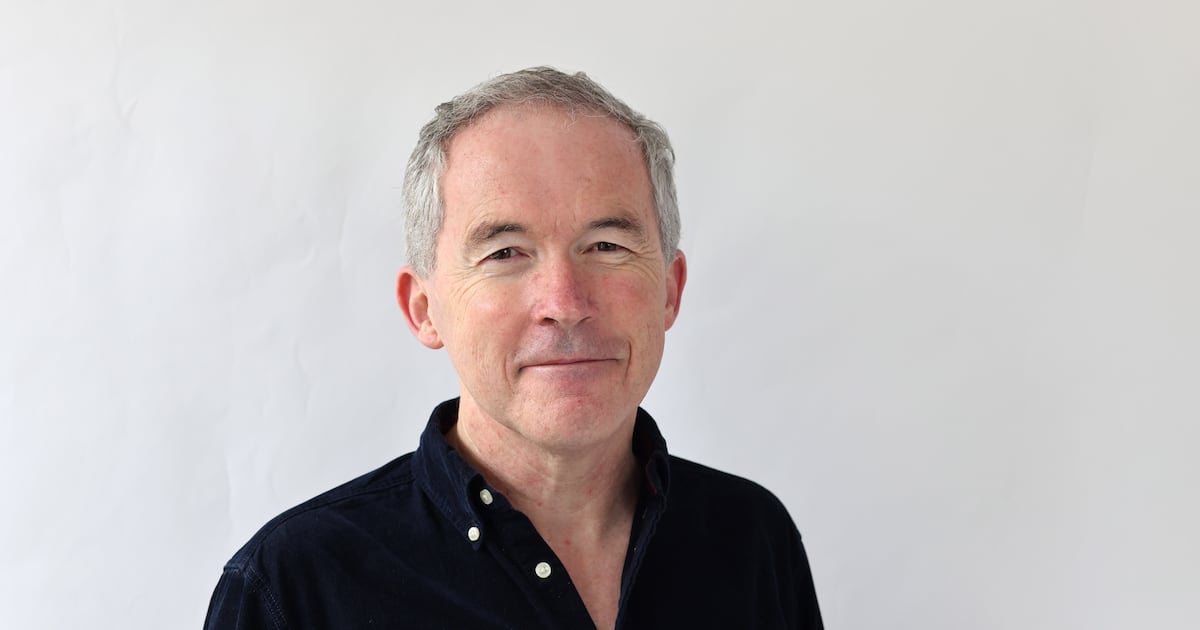Not Making Hay
Author: Frank McNally
ISBN-13: 9781804583197
Publisher: Gill Books
Guideline Price: €18.99

Read more on post.
As a boy, Frank McNally learned to drive a tractor over the famous Monaghan drumlins, a tricky landscape to negotiate, requiring patience and a clear head. It wasn’t the only rocky terrain he’s had to deal with in a long career in journalism, starting off in the jobless, joyless 1980s and eventually finding his home as incumbent of the Irish Diary column in this paper.
Not Making Hay is a memoir, seasoned with columns from the Diary and covering the writer’s progress from Carrickmacross farm boy, through the Civil Service, precarious years as a freelancer and the perils of the Dublin newspaper world, not least a job interview with Vincent Browne.
As is often the case, the childhood years inspire the most lyrical writing. McNally’s youth really did take place in a different world, agriculturally and culturally. The neighbours still rallied round for threshing days at harvest time; cows were milked by hand and the “AI man” wasn’t Sam Altman. McNally expresses a preference for hay over silage – until reminded by a correspondent that many suffered “farmer’s lung” from the dust of hay. This kind of acknowledgment is common in McNally’s work: a romantic preference is re-examined in the light of sobering evidence.
The kind of precocious, well-read schoolboy whose essays were read aloud by his English teacher, in hope of emulation, McNally never really felt destined for life as a farmer. There’s a very funny piece here about his managing to turn his writing talent into a grade D in Leaving Cert English. The Civil Service, and Dublin, beckoned, and Monaghan was left behind – though mentions of its football team abound in the column and this book.
McNally’s relationships with his parents are not romanticised. Like many men of his generation, he didn’t talk much to his father until it was too late. His mother was deeply religious and deplored her son’s irreverence. One of the strongest and most moving pieces here concerns her funeral – the writer’s mixed emotions, the telling intervention of a more empathetic relative. McNally is good at describing both his feelings and his failings.
Success against the odds is one of the motifs in this memoir: the path to the top of the letters page in The Irish Times has been a steep and slippery one. McNally left the Civil Service for a year doing terrible jobs in Australia – there’s a chapter about his excruciating inability to give a beloved employer his notice. Then he spent much of the 1990s as a freelance writer in Dublin, contributing humorous “sketches” to Phoenix magazine and others. His best-known, anonymous column was the Diary of a Nortsoide Taoiseach: it was funny and irreverent but not cruel, qualities that have been carried forward into his present employment.
Some of the frankest (sorry) anecdotes here concern his high-profile colleagues on (then) D’Olier Street. The late Eileen Battersby’s eccentricity is fairly unsparingly portrayed, and McNally had an uneasy, rather one-sided friendship with Kevin Myers, his predecessor as the Diary’s anchor tenant, culminating in a breach when he was deemed insufficiently supportive at the time of the latter’s break with the paper.
[ Here it was again, the phantom Yeats quote in an Irish pub in PerpignanOpens in new window ]
A couple of McNally’s illustrious influences, Patrick Kavanagh and Myles na gCopaleen, play lesser roles in the book than one might expect, especially as McNally is an acknowledged expert on Myles. Kavanagh – Monaghan man, cussed outsider in Dublin, lyricist with a talent for making enemies – is both hero and caution to McNally. There’s a grim description of an alcoholic Myles urinating against the counter of a bar – genius, as with Kavanagh, never far from despair.
Day to day, of course, McNally’s Irish Diary column is upbeat, the style breezy, fluent, attentive to matters of grammar and usage. (Language and history are his real loves.) If we conceive of its author as a friendly, curious, chipper type who wanders the city in search of colour and anecdote, for our morning edification, we won’t be disabused of that image by this book.
There are other aspects, though, seldom in evidence on the letters page. Real anger and grief in the account of the life and death of his childhood friend Gary Sheehan, a trainee garda murdered in Leitrim at the time of the Don Tidey kidnap and, for McNally, inadequately commemorated. Some ambivalence, too, in his treatment of his rural roots: if there’s a theme running (a key McNally verb) through this memoir, it’s that we should beware nostalgia.
He’s probably sick of being asked whether acting, four mornings a week, as counterbalance to the horrors of the front page (and often the editorial) is fulfilling. But there must be a Great Monaghan Novel still to be written (with all due respect to various McCabes).
Make some hay, McNally.